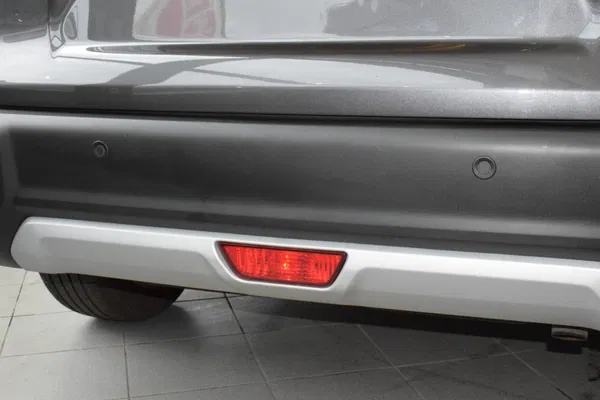Urban environments are bustling with activity, but they come with a unique set of challenges—one of the most prominent being the lack of sufficient parking spaces. Navigating through tight alleys, busy streets, and narrow parking lots can be a stressful experience for even the most experienced drivers. This is where parking assist systems come in, revolutionizing the way we park. With cutting-edge technology, these systems make parking safer, quicker, and more efficient.
In this article, we’ll explore the best parking assist systems available in 2024, their features, advantages, and how to choose the right one for your needs.
Understanding Parking Assist Systems
What Are Parking Assist Systems?
Parking assist systems are advanced automotive technologies designed to aid drivers in parking their vehicles efficiently. They use a combination of sensors, cameras, and software to detect obstacles, measure available space, and guide the car into a parking spot.
Types of Parking Assist Systems
- Passive Parking Sensors
These systems provide audio or visual alerts to warn the driver about nearby obstacles. - Active Park Assist
Active systems take over steering, while the driver controls the accelerator and brakes. - Fully Automated Parking Systems
The latest innovation where the system handles all aspects of parking, including acceleration, braking, and steering.
How Do Parking Assist Systems Work?
Parking assist systems rely on ultrasonic sensors, radar, and cameras placed strategically around the vehicle. These components work in harmony to assess surroundings, provide feedback, and execute precise maneuvers.
Key Features to Look for in Parking Assist Systems
Sensor Technology
Modern systems use a combination of ultrasonic sensors, radar, and high-definition cameras for enhanced accuracy.
Real-Time Feedback
Visual and auditory alerts displayed on the infotainment screen keep the driver informed during parking.
Autonomous Steering and Braking
Advanced systems partially or fully automate parking, ensuring precision in tight spaces.
Parking Guidance and Space Detection
These systems can identify parking spots that are suitable for the vehicle’s size, even in densely packed urban areas.
User-Friendly Interface
Intuitive controls, voice commands, and clear displays make these systems easy to operate.
Urban Compatibility
Designed to handle scenarios like parallel parking, tight turns, and multi-level garages.
Top Parking Assist Systems in 2024
Premium Systems
Tesla Autopark
A leader in autonomous driving, Tesla’s Autopark feature provides seamless parking solutions.
BMW Parking Assistant Plus
Offers a 360-degree camera view and automated parallel and perpendicular parking.
Mercedes-Benz Active Parking Assist
Includes advanced sensors and AI for handling complex parking scenarios.

Mid-Range and Affordable Options
Ford Active Park Assist 2.0
Perfect for tight urban spots, offering precise guidance and autonomous steering.
Hyundai Smart Park Assist
Known for its “smart park” feature, ideal for compact spaces.
Toyota Intelligent Park Assist
A reliable system that combines affordability with robust features.
Aftermarket Solutions
For those with older vehicles, aftermarket options like ParkMate and EchoMaster provide budget-friendly solutions with excellent performance.
Comparing the Best Parking Assist Systems
| Feature | Tesla Autopark | BMW Parking Assistant | Ford Active Park Assist |
| Precision in Tight Spaces | Excellent | Excellent | Very Good |
| Ease of Use | High | Moderate | High |
| Cost | Premium | Premium | Mid-Range |
| Maintenance | Low | Moderate | Low |
Pros and Cons of Parking Assist Systems
Advantages
- Enhanced Safety: Prevents collisions with pedestrians and obstacles.
- Reduced Stress: Simplifies parking in challenging spaces.
- Time Efficiency: Quickly identifies and utilizes available spots.
Limitations
- Cost: Premium systems can be expensive.
- Dependence on Technology: May not work effectively in extreme weather.
- Learning Curve: Some systems require initial familiarization.
Future Trends in Parking Assist Technology
- AI and Machine Learning Integration
Future systems will predict and adapt to dynamic parking scenarios with greater precision. - Smart City Connectivity
Parking assist systems will communicate with smart infrastructure to locate available parking spaces. - Fully Autonomous Parking
Technologies like automated valet systems will handle parking without any driver intervention. - Eco-Friendly Solutions
Energy-efficient systems with minimal environmental impact will become the norm.
Tips for Choosing the Right Parking Assist System
- Assess Personal Needs
Evaluate how often you park in tight spaces and the level of automation you require. - Consider Compatibility
Ensure the system is compatible with your vehicle’s make and model. - Read Reviews and Expert Recommendations
Customer feedback and professional reviews provide valuable insights. - Check After-Sales Support
Opt for systems with good warranties and customer service.
Conclusion
Parking assist systems are transforming the urban driving experience by simplifying one of the most challenging aspects—parking in tight spaces. With numerous options available, choosing the right system depends on your budget, vehicle, and parking needs. Investing in a parking assist system not only enhances convenience but also promotes safety and efficiency.

 Why Mobile Tyre Replacement is the Future of Car Maintenance
Why Mobile Tyre Replacement is the Future of Car Maintenance  The Real Cost of Anime Car Wraps: What You Need to Know Before Going Full Itasha
The Real Cost of Anime Car Wraps: What You Need to Know Before Going Full Itasha  The Importance of Quiet Generators for Peaceful Sleep: Featuring the Jackery Solar Generator 2000 Plus
The Importance of Quiet Generators for Peaceful Sleep: Featuring the Jackery Solar Generator 2000 Plus  Why WEX Motorpass Is the Smart Choice for Business Fuel Management
Why WEX Motorpass Is the Smart Choice for Business Fuel Management  Top Choice for 4WD and Overlanding Rentals in Bozeman
Top Choice for 4WD and Overlanding Rentals in Bozeman  How Car Window Tinting Enhances Privacy and Protection on the Road
How Car Window Tinting Enhances Privacy and Protection on the Road  Certified Preowned Cars: Are They Worth It?
Certified Preowned Cars: Are They Worth It?  Apps That Help Diagnose Car Problems Like a Mechanic
Apps That Help Diagnose Car Problems Like a Mechanic  How to Track Fuel Efficiency and Expenses Using Smart Apps
How to Track Fuel Efficiency and Expenses Using Smart Apps 